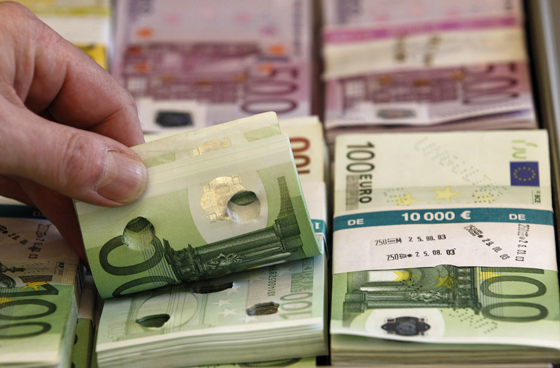«Do not believe that the Mafia is only an Italian problem», says Georges Dassis, president of the Workers’ Group of the European Economic and Social Committee (EESC). In 2013, Europol identified 3,600 criminal organizations operating in EU member states: 70% of these organizations manage international operations while the rest operate at local and national level. Every year the national governments are deprived of 670 billion euros worth of revenue. According to Dassis, «If our Governments would decide to fight against the crime, they would save 100 billion euros per year of their own budget, almost double of what they receive as structural funds.»

The economic crime organisations invest throughout the EU
A report on the investments of criminal organizations released by the Catholic University and the University of Trento, shows that criminal economic activities take place in roughly all EU countries and most are of a transnational nature. Spain is among the countries in which economic crime organizations invest the most. In the countries included in the report (Italy, France, Spain, Finland, UK and Netherlands), the largest revenue for economic criminal organisations comes from the clothing, accessories and food sectors, which generate criminal revenue amounting to 18,886 million euros per year. Next comes heroin trafficking which accounts for 6,153 million euros, followed by the cannabis market which turns over 3,568 million euros per year. The sexual exploitation industry in countries such Italy, France and UK produces an annual turnover of 4,231 million euros.
Mass infiltration takes place where regulations are week or unclear.
Sectors that experience considerable criminal infiltration are the construction business, restaurants and bars, real estate agencies, public administrations, and generally speaking sectors where regulation is weak or hasn’t yet been implemented, as is the case with renewable energies and slot machines. Sectors famous for illegal activities are the import and export of forbidden goods, drug and arms trafficking. Another sector where fraudulent activities are often encountered is the fuel market. Sex and tattoo shops generally patronized by motorbike gangs are also mostly financed by criminal investments. Italy features almost all of these kinds of criminal investments.
Chinese Mafia in Italy, Camorra in Spain, Cosa Nostra in Romania
In Italy besides the “made in Italy mafia”, there are also other foreign international criminal organizations, especially from China. So far as many as 200 Chinese businesses have been shut down and impunded. They were mainly involved in clothing, shoes, pastry shops, bars and restaurants. But the money transfer agencies, that have generated revenue of 4.5 billion euros by transferring illegal funds to China, are probably the most profitable. All activities managed by Chinese and Italian bosses.
The ‘Camorra’ infiltration in Spain mainly concerns the restaurants sector.
In particular, Spanish criminals manage to infiltrate local politics and public administrations through catering services provided for foreign Embassies or foreign chambers of commerce in Madrid.
The ‘Cosa Nostra’ criminal organisation on the other hand has invaded Romania and secured the most complete control over the Romanian territory in Europe.
Anticorruption intergroup in the European Parliament and Libera agenda
The European Parliament has recently set up an intergroup to work on anticorruption, transparency and criminal organizations. Don Ciotti, from Libera, in the past weeks has been presenting the main objectives on the agenda for the association to fight corruption in Europe: EU legislation regarding mafia properties seized by the states, the date of 21st of March as an international day of remembrance for mafia victims. Other important points concern specific legislation introduced to fight environmental crimes and the appointment of the European Public Prosecutor. At a time when massive criminal infiltration was revealed as taking place at the very heart of Rome’s council, even the Mayor of Casal di Principe, Renato Natale, addressing the EESC in Brussels, reiterated that it was essential not to go back to purely anti-establishment antics at this time “They tried to knock me off, but after 20 years I’m back as mayor. Dirty politics can only be fought through political participation”.






